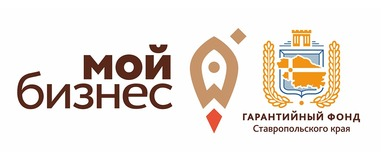hotline for investors
+7 (8652) 35-22-92, 2161
Mon-Fri: 9:00-18:00, Break: 13:00-14:00Food and Processing Industries
Stavropol Krai has a multi-area food and processing industry, which includes 38 types of economic activity. The food and processing industry, with its significant industrial potential is capable to meet most of the regional needs and to process all the agricultural produce yielded in the region (except wheat grain and sugar beet).
Subject to the Food Security Doctrine of Russia and Strategy for Food and Processing Industry Development till 2020, the major priority within the industry is increased food supply through expanding internal food resources and reducing the mismatch between the raw stuff and the existing processing facilities.
The processing area employs 27,000 people, which is 30% of all those employed in the industry.
The regional food and processing enterprises produce a wide range of products – over 600 types of bread, alimentary, and confectionery products; 150 sausage types; over 300 dairy products; 200 canned meat and fruit-and-vegetable types; white sugar (of sugar beet and raw sugar); vegetable oil (hydrated, refined, freeze-dried); corn syrup; modified corn starch; 38 types of baby formulas based on dry grain mixes and (or) containing dry milk. The pasts produced in Stavropol Krai meets the best international standards and the trademarks of Petrovskie Nivy, Baisad, Korona Stavropolya, Nika, etc. are well-known among consumers. A new type of pasta product made of corn has been launched. Newer equipment installed at the local cheese dairies allows manufacturing highly-competitive quality products with an annual output exceeding 5,000 tons.
The local facilities producing vegetable oil provide over 30,000 tons of sunflower seed, corn, rape, and linseed oil.
Canned vegetables are represented in an extremely wide range of goods.
The regional enterprises also produce natural juices, nectars, pickled, and canned fruit that shall meet even the most exquisite taste.
The mineral waters of Stavropol Krai are the widely known brands including Narzan, Slavianovskaya, Smirnovskaya, Novoterskaya, Essentuki among others. And the quality assurance and monitoring system here is exceptional, which only adds to the recognition won by the local producers bringing to the market over 400 mln liters of natural mineral water (some of the waters are of therapeutic nature).
The stable growth observed in beer and soft drinks production allows an annual output of over 14 mln decaliters.
The regional agricultural enterprises grow over 30,000 tons of grapes per year, which is followed with its processing into various types of wine (table, sparkling, dessert wines).
The locally produced alcohols supplied by distilleries with their traditions dating back hundreds of years ago, enjoy stable consumer demand (vodka; grapes vodka; cognacs; balms; whiskey).
3-20 year-old cognacs alone are available in Stavropol Krai in more than 50 types, wines – over 300.
In order to improve the population's health in Stavropol Krai, tere has been production of prebiotics-containing foods launched, as well as the range of goods with preventive properties is expanding (up to 100 foods – foods for people with diabetes; prebiotics-saturated dairy products based on milk protein; breads with iodine, whole-grain and vitamin-mineral additives; mixtures of bean, lens, and barley flakes).
Annually Stavropol Krai supplies the outer market with more than RUR 25 bln worth of goods. Given that, the region brought in RUR 33 bln worth of foods in 2008 and only RUR 20 bln worth of goods, while in 2013 the same indicator went down to RUR 12 bln only, which is evidence to the competitive potential of the goods produced in Stavropol Krai.
However, given the relative stability in the economic field, there are still a number of issues that require urgent measures – wear and tear of the facilities (over 40%); loss ratio of certain companies (22%); low level of employing the available facilities (40-50%), as well as lack of governmental support – both federally and regionally.
Subject to the State Program for Developing Food and Processing Industry and Consumer Market, RUR 12 mln were allocated to renovate the food production facilities in 2014.
In view of the raw resources potential of the region, one of the major objectives is to support deep processing and conversion of agricultural produce, which is supposed to help increase the processing of grains up to 3 mln tons by 2020.
A similar task has been set for sugar beet processing as the gross yield of sugar beet in the region is much above the region's processing capacity, while establishing bio-energy units for sugar beet processing (Novoalexandrovsky and Kochubeevsky Rayons) and renovation of the Izobilnensky Rayon processing plant will allow processing over 2.5 mln tons of sugar beet per year on the regional premises.
Underway is an investment project (Stepnovsky Rayon) to establish full-cycle agricultural processing. Due to the project the output of canned vegetables is to go up by 100 mln of conventional cans / year (30 to 130 mln cans).
Budennovsky Rayon is to host advanced facilities for growing and processing a wide range of vegetables finally producing vegetable oil; flakes; feed (pumpkin seeds); juices; mashed fruit; pectin and inulin (capacity – 350 tons / day; project budget - RUR 470 mln; number of new jobs – 100).
The operating dairy plants work on comprehensive use of all the dairy product fractions – protein; fat; mineral salts; lactose). There are plans to install equipment based on membrane technologies, reversed osmose, and units for serum drying.
A dairy plant is to be built in Kochubeevsky Rayon with a capacity of 70 tons / day (budget – RUR 350 mln; new jobs to be created – 60).
New innovation-based packaging technologies are being employed on a wider basis.
The enterprises involved in bread and pastry production, meat processing, beer and soft drinks production, as well as mineral water bottling are undergoing technical renovation.
In view of the lack of storage for fruit and vegetable produce, newer facilities have been built in the region with a capacity of over 160,000 tons. This capacity together with the capacity for processing is to be enhanced by another 250,000 tons.
The measures above-mentioned are to allow increasing the food production and expand their range thus helping resolve the issue related to substituting imported goods with similar local ones.








